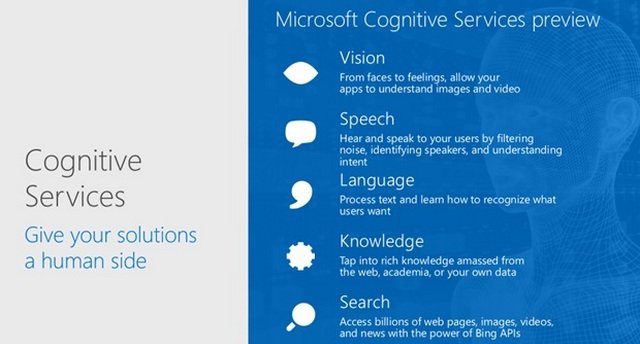In today’s mobile ecosystem, you need to create more engaging, insightful, and targeted mobile app experiences. User expectations have evolved as mobile technologies have become more sophisticated, and things considered bleeding edge in the recent past are no longer up to par.
Today, customers expect apps to be smart.
Users want minimal friction, the ability to navigate and interact effortlessly. They want catered experiences that are relevant to them. They expect that apps are intelligent enough to know their intent and desires with less input and fewer taps.
Even a year ago, this wasn’t easy to achieve. But with huge advances in artificial intelligence, big data, and machine learning, it’s rapidly becoming a reality. The combination of these three technologies enables us to make apps smart. We can make our apps learn from each customer interaction and a variety of data points, ensuring that experiences are better, more engaging, and more personalized for users – every time they use the app.
At the forefront of many of these developments is Microsoft Azure’s Cognitive Services. Cognitive Services is a suite of APIs that allow developers to add AI to their offerings. There are a wide range of APIs available for purposes ranging from natural language processing to voice recognition and beyond.
There is huge potential to leverage Cognitive Services to improve and even revolutionize mobile app experiences. We can make our apps smarter to:
- Learn from data and user behavior to be more engaging and relevant
- Automate the way content is served to users to make experiences contextual and personal
- Reduce friction points while simultaneously improving security
While Cognitive Services has an impressive list of APIs in production and soon to be available, I believe the following are the most interesting in their potential to impact user experiences, customer intelligence, and engagement.
1. Custom Decision Service
This service leverages machine learning to serve contextual content based on data you provide and the behavior of your users. Using feedback (user activities and behaviors), it makes decisions on the type of content to serve to particular users, and learns to serve more targeted content as more data is gathered. The Custom Decision service is also intelligent enough to run experiments with the type of content it serves by testing content options with users.
To give an example, if a music app has a recommendation feature that makes suggestions based on listening history by genre, the service could test user reactions to music that is from a different genre than they had previously listened to. In this way, this allows the service to ensure it is not making mistakes with the type of content it is serving.
The API allows your app to automatically and rapidly learn about users in order to make the user experience more engaging, personal, and relevant. And since everything is hosted on Azure, you only have to provide the data and it learns automatically.
There are many use cases for implementing the Custom Decision service into mobile apps, particularly for things like ad targeting, news cycles, recommendation engines, push notifications, any content-focused subscription services, and more.
2. Content Moderator
Content Moderator is a service that combines machine and human-based content review to allow app owners to have greater control over any user-generated content on their mobile app. It is ideal for mobile apps that allow for user-generated content because it can moderate text, images, and video.
Text: The service is able to detect potentially offensive content in over 100 languages by matching it against custom lists, and also looks for personally identifiable information. It flags content and blocks it from being published on your app.
Images: Using custom lists, optical character recognition, and machine learning-based classifiers, Content Moderator can block and flag any user-generated images.
Video: Content Moderator searches for and blocks adult video content to prevent it from being published to your app.
Furthermore, you are able to add content to blacklists and the system will learn what kind of content it should be blocking based on the data you provide it. As more data is collected, the Content Moderator gets better at identifying which content needs to be flagged.
Importantly, Content Moderator allows you to retain control and visibility with a human review tool. This is a great feature for content that falls into a grey area and is not easily caught algorithmically, as it flags potentially offensive content and allows a human moderator to review and either discard or approve it.
Content Moderator is ideal for mobile apps that have a lot of user-generated content. Apps that don’t have this type of service in place require a great deal of manual moderation – in other words, you have to pay somebody to monitor, review, approve and remove this kind of content from your app. Apps that allow commenting, photo and video uploading, and other forms of user-generated content can benefit tremendously from this service.
3. Speaker Recognition API
The Speaker Recognition API is the next step in authentication and security. It can be used to add voice authentication as a safeguard for users to access applications, rather than things like passwords or pins, logins, or even biometric authentication like fingerprint scans. Voice authentication has great potential to enhance the user experience by streamlining authentication, particularly for apps with username/password login or pins.
Many users opt to remain logged into apps so they don’t have to sign in every time they use them. While this is more convenient, it is a security risk. Adding voice authentication keeps the authentication process simple and fast while blocking access to unrecognized users, which is both convenient and secure. When users want to use the app, they simply say a word or phrase to gain access.
This API is especially useful for mobile apps that deal with sensitive information. Banking and financial services first come to mind, though the Speaker Recognition API can be useful for any application that has user profiles with personal data.
Closing Thoughts
The trend toward intelligent apps is quickly gaining momentum and is likely to be a huge driving force in the way mobile apps evolve in the foreseeable future. With the potential to create more targeted, contextually relevant, and personal user experiences, it’s an area that we will see a lot of focus on. Microsoft Azure’s Cognitive Services are currently a step above the rest when it comes to adding intelligent features into applications, with just a few of many APIs being discussed above.
In part 2 of this post, I will be discussing additional Cognitive Services, focusing on Language and Knowledge APIs in the context of chatbots and automated customer service in mobile apps. Stay tuned.







